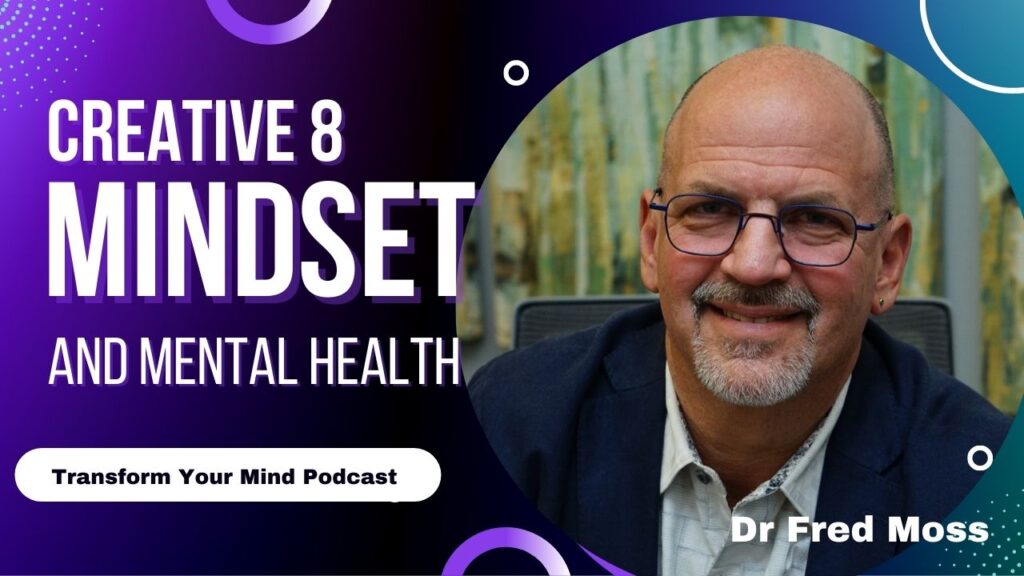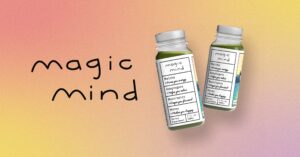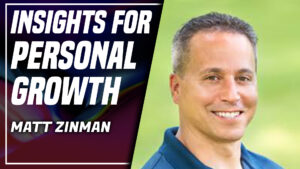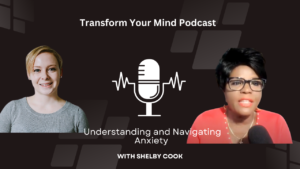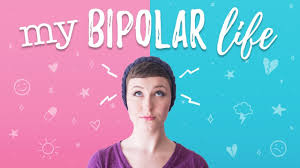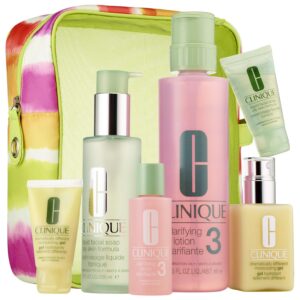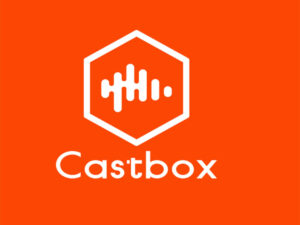Dr Fred Moss, psychiatrist, shares why he thinks that, psychiatric medications, is like cutting off your arm if you have a mosquito bite. In this podcast we discuss using your, true voice, to reclaim your, mental health, and why actively doing one of the creative 8 activities like creating music, dancing, singing, drama, cooking, writing, gardening, and photography can remove the need for, psychiatric medications.
Download the podcast here:
Bio
Dr. Fred Moss, MD is the foremost expert on delivering your True Voice into the world so that it can heal because your voice matters. Your voice can heal. Dr. Fred has been actively practicing in the, mental health, field internationally for over 40 years, and as a, psychiatrist, has been an unwavering stand for the transformation of, mindset. He is a firm believer that conversation, communication, creativity, and human connection are ultimately at the source of all healing of all conditions in all fields.
Along with being a highly successful restorative/transformational coach, his signature technology, True Voice Podcasting is for people who are ready to take their lives back by speaking their authentic message into the world. TVP is designed to guide people from all walks of life, who are ready to rediscover the confidence and courage necessary to bring their full and real humanity back into all areas of their life.
Communication is a mental health tool
Fr Fred: I was born to be a communicator. I was trying to bring healing and joy to the world. My family was in a fair amount of disarray. I had two brothers 10 and 14 years older than me, I still have two brothers 10 and 14 years older than me and, I learned a lot from them about, communication. One day as a young adult my said well, you have to get a job now, and told me that so she got me an application.
I applied and got the job. I started working with adolescent boys at a state hospital, a state, mental health, facility. I was finally getting paid to communicate. And that’s all I was doing. I was communicating with these wonderful human beings who were now living in a in a state hospital and we were healing each other’s, communication.
It was really fun and really a great job. We got to take field trips and play softball and all the cool stuff that I did with these kids. The thing I didn’t like, was the way, psychiatry, was treating these kids. We would call the, psychiatrist, and say Jimmy is up too late or Timmy and Tommy got in a fight.
And he would come down and after three seconds of talking to the kid and maybe six seconds talking to us, he takes out his weapon, his pen. And he would write something in the chart. And then we’d have to go get Timmy and Tommy and hold them down while we injected them full of very high-powered sedatives to put them out of their misery and for the next 12 or 24 hours and if Timmy or Tommy didn’t say another word for 24 hours, we would call that a success.
Sponsored Ad
I want to introduce you guys to a product I just started using called Magic Mind. What an awesome name Magic Mind. The name suggests what this product does. Magic Mind gives you the benefits of mental clarity, energy, productivity with 33% less caffeine than coffee. I always envied my husband he could drink coffee for dinner and sleep like a baby.
Not me. I have huge caffeine sensitivity, if I drink a cup of coffee at 8 am at 2 am I am wide awake so I was a bit skeptical to try magic mind but it was wonderful, since I started drinking Magic Mind, I get an energy boost throughout the day. My memory is sharp. I can recall facts quicker when doing my interviews and I can sleep at 8 pm.
Here are some of the ingredients in Magic Mind that makes this product magic.
L-theanine – The L-theanine in Matcha helps increase focus and attention.
Bacopa Monnieri – natural nootropic, that helps with procrastination, much like a natural Adderall.
Ashwagandha and Rhodiola Rosea – work together to decrease stress and low-grade anxiety by lowering your cortisol levels. This is what worked for me.
So, whether you need an energy boost, more focus or you want to cut down on your caffeine consumption because of negative side effects, like jitters or crashes, I absolutely recommend you go out and pick up a case of magic mind, it is a game changer.
These next 10 days, you can get 40% off your subscription at: https://www.magicmind.co/mind With my discount code MIND20
Using psychiatric medications to sedate patients
Now, that’s still happening in all the state hospitals around this country and mostly around the world too. We’ve not grown past that; it’s still going on. I made it my business to become a, psychiatrist, at that point. I was going to become a, psychiatrist, and bring, communication, back because that I knew that, communication, healed. So took in a big inhale and 13 years later, I graduated from the University of Northwestern University as a as a, psychiatrist, and did my residency in Cincinnati and started being a, psychiatrist.
But in the meantime, Prozac, had been introduced to the world. Prozac, was a medication that changed the whole paradigm of, psychiatry, Biological Psychiatry, chemical imbalance.
Myrna: what’s the difference between a, psychiatrist, and a psychologist?
Dr Fred: A, psychiatrist, prescribes medicine, but that’s actually the last thing I wanted to do as a, psychiatrist. But now it was my typecast and it was what I was doing. Yeah, for the next 30 something years, I wrote over 100,000 medication prescriptions. I saw over 40,000 patients who call me their doctor. And it was very difficult because every time I wrote a prescription, my heart would wrench just a little or my soul would sacrifice it sometimes, not just a little sometimes later, in 2006, I finally decided that I could no longer do that.
Sponsored Ad
Dana Gillies & Tatyana Kirsanova (Best friends and corporate professionals) are the hosts of the Authenticity Atlas Podcast
This podcast is about helping people navigate their way towards a more joyful and authentic life, to learn how to become a better person and understand yourself and others better.
We are VERY vulnerable – especially considering we are corporate professionals.
Download and listen to the Authenticity Podcast on Apple iTunes or wherever you get your podcasts

I started taking my patients of psychiatric medications
It was 15 years after I started. I started taking people off their diagnosis and taking them off their, psychiatric medications, and seeing how they did. Now I know that sounds kind of radical. It’s kind of interesting that we’re more concerned about taking people off of medicine than giving it to them.
Myrna: It’s the society, right? It’s life. Why did you become radical?
Dr Fred: I was radical. I took away stuff that was making them worse until they got better. Then I started becoming a healer. I call it my, true voice, moment. When I really started becoming a healer, I was no longer just a doctor, but a healer. And I began communicating with all my patients a little bit more and a little bit more. Until I really knew that I was back to being little Freddie who was pretty sure that, communication, and connection was the point here on Earth.
And over the last 15 years since 2006, I’ve really been just edging myself forward to being a stand for, communication, and connection and my practice has evolved over time, I’ve done work all over the world. A lot of, telepsychiatry, and a lot of utilization review, and I’ve been in every single corner of American, psychiatry, usually as a leader and really attempting sometimes without much success to inject, communication, as the core source of all healing.
Communication with podcasting
Telepsychiatry, a subset of telemedicine, can involve providing a range of services including, psychiatric, evaluations, therapy (individual therapy, group therapy, family therapy), patient education and medication management. Telepsychiatry, can involve direct interaction between a psychiatrist and the patient.
Eventually I set up Welcome to humanity.
Welcome to humanity is my brand name. That’s where you’ll find me is the www.welcometohumanity.net that’s what my main website is and it’s self-explanatory. It just says all of the experiences that we’re having as humans are to be embraced, including the ones that are miserable and painful. Now I’m actually a restorative transformational coach, and I’m a podcast teacher and I’m an expert speaker and a podcast guest. I have my own podcast and I am so finely aligned with who I really came here to be again after 50 years of trying out some other stuff.
Myrna: Well, that’s amazing. Number one that you felt that you knew that you wanted to communicate, in kindergarten, I guess because you had older brothers. So why did your mom get you a job in the, mental health, field? Did you do some work with, mental health, in college?

Starting in the mental health field was coincidence
Dr Fred: You know, it was easy enough to get a job in the, mental health, field. My mom was already a social worker. She didn’t quite give me the job. She got me an application at Fairlawn Center, which was a state, mental health, facility, a civil service job.
Myrna: Well, that’s amazing because that’s usually how if you’re able to be on purpose, that’s how God directs you. Okay, the second question that I have here is, so when you decided to take your patients off of, psychiatric medications, and you said it taught them to communicate. Are you saying that let’s say that someone is on, Prozac, because, Prozac, settles them down. Are you saying that if people really heard them and listened to them, they won’t need these, psychiatric medications? Where are you coming from with that?
Dr Fred: That’s an important question. So, the first thing I want to say to all the listeners is if you have found something that works and it has to do with, psychiatric medications, and your diagnosis, by all means, please don’t switch. Okay. I mean, we’ve got something that’s really working, I’m not telling you to switch. So, let’s make that really clear. This is for people who really know that they’re not living their ultimate optimal life.
Prozac controls your emotions by stopping feelings
When I took my patients off their, Prozac, or the medications like that, what would happen is they would find themselves again coming in touch with their own feelings, coming in touch with their own emotions in ways that have been muted over the years. When they got in touch with themselves, we could learn that they didn’t even have a diagnosis in the first place and in many cases the, psychiatric medications, and the treatment were really perpetuating the actual symptoms they were marketed to treat.
So, you know, that when you start really looking at that, and we pull people off of their diagnosis, because now I can’t just pull people off their, psychiatric medications, the medicine is not the problem. It’s the idea that we all think there’s something wrong with us. And then we get confirmation that there’s something wrong with us and then we need so called, psychiatric medications. The truth is, there’s nothing wrong with you, you’re making it through the world like any of us and you’re just as confused. At times are fearful and other times anxious or depressed.
You make mistakes, you hurt people or something, that’s called being human. You know, people are like, oh, no, I have a diagnosis. It’s interesting a, psychiatrist, can’t get paid unless he gives you a diagnosis. Right? If he writes no diagnosis, he won’t get paid. So, there’s a major incentive to diagnose every single person who comes into their office number one.
Number two, it’s also the only field in all medicine where if you come into the office thinking there, there might be something wrong with you and the doctor says that there’s nothing wrong with you. Then you get upset. If you had gone to the heart doctor, and he says you’re okay, would you get mad at him?
Myrna: Of course not.
Psychiatrists write prescriptions to control diagnoses
Dr Fred: When we get a diagnosis, it helps us relinquish responsibility for the parts of our life that we don’t like. But if we can blame that on, ADHD, or, social phobia, or, post-traumatic stress disorder, or, major depression, or, bipolar disorder, Autistic Spectrum Disorder, narcissistic personalities, etc. The experiences you’re having in life isn’t like get over it. No, I’m not saying that. What I am saying is embrace it as part of being you and this human condition. And don’t think of it as a deficiency or a sickness.
Myrna: I understand people like to feel good. And these conditions don’t make you feel good. I don’t know about, ADHD, but all the other ones you don’t feel good. So, you want some kind of beta blocker or something to block the symptoms if you’re not feeling good. It’s not what you say these, medications, do. But I wanted to get to the point where you’re saying that they can talk it out.
Dr Fred: Well, inside of, communication, what we really are talking about therapy. Therapy also presumes that there’s something wrong with a patient. Okay? Well, what this is really about is connection. So, it isn’t really about just talking it out. It’s about connecting with another person at whatever level that takes resonating with another person or with your experience.
Myrna: Can they connect that way to their psychiatrists, or we’re just telling them to talk to anybody to connect with anybody?

Psychiatry has a power gradient
Dr Fred: The deal with, psychiatry, is that there’s a power gradient, there’s this idea that the, psychiatrist, is okay and you’re not, right. That’s actually not true. We’re both not okay. When we look across the table at each other and see our actual humanity, that’s where healing starts. When there is a gradient, psychiatry, if you’re a patient down there, this perpetuates an ongoing experience of there being something wrong with the patient.
Myrna: Okay, so that’s actually good, because if you walk into the room thinking that there’s something wrong with you and you need help that’s is what you expect. Tell us about healing through creativity and self-expression and the, creative mindset.
Dr Fred: One of the things is that none of us really seek out being uncomfortable. We’re looking to be comfortable. However, we are so addicted to this idea of comfort being normal we think being uncomfortable is abnormal. The truth is, being uncomfortable is totally normal. This is a really crazy world out there. And not only that humanity is an uncomfortable experience. What I noticed in when writing the book, The Creative 8 Mindset, was that when we’re creating our, mindset, shifts.

Healing using the creative 8 mindset
When we are creating music, dancing, singing, drama, cooking, writing, gardening, these are all things that when we’re creating, they really work to decrease that negative symptomology. While we’re doing any of those creative things, the negative experiences dissolve and disappear. So, with the, creativity, this is different than if you’re listening to music, I want you to be making music. It’s different than if you’re at an art museum, or looking at a beautiful piece of art. I want you to actually be making art. It’s just like if you’re watching Dancing with the Stars, or if you’re actually dancing.
So, the, creative 8 mindset, reminds us that we are here to be creators. So, I invite people to really do that creative eight, exercise which is finding three of those things, art, music, dancing, singing, drama, cooking, writing, and gardening and doing them each day even for just one minute. And really noticing how positive experiences can evolve simply by becoming creative.
Now ultimately, there was a couple more I added on photography and cleaning. And then there’s the trump card if you will, and the trump card is to help anybody do anything. When we’re helping other people do things, it’s also an amazing experience of having our own concern about ourselves disappear as we become service oriented. And that’s just another way to use the, creative 8 mindset, to our benefit.

Finding your true voice for mental health
Myrna: How does finding our, true voice, connect to the, creative 8, mindset?
Dr Fred: If you’re already on medicine, it’s actually really hard to do that. Because medicine can really stifle and smother creativity. The, psychopharmacological medications, do not expand the, creativity, in any way shape. The, psychiatric medications, often perpetuates a condition to remind you treat and it isn’t a matter of you do get to come off medicine, it’s a matter of that’s a good way to manage your life. If you want to come off medicine, the best way to go for that it’s going to be to start connecting with people.
Right now, you know, still help others still be creative, still be loving and still be accepting and compassionate and friendly and kind and all those things. Can you do that even in the face of a world that’s looking like it’s spiraling out of control?
Myrna: So how does using your voice help, mental illness?
Dr Fred: I don’t know anything else that’s gonna help with, mental illness, except using our voice actually. And the truth is, we think that taking medicine is going to help and really in the end, once you’re diagnosed with whatever condition you have, and you’re started on, psychiatric medications, the medication is frequently designed or at least, achieves the goal of perpetuating a symptom of market intention.

Getting off psychiatric medications
So, you’re on that, psychiatric medication, for good. Very few people come off, psychiatric medications, when you first start medicine, you think if it’s not going to work, well just stop it, but it’s not really true. It’s not going to work, we’re going to change it or we’re going to increase it or we’re going to add another medicine. Doctors are not even trained not to take you off, psychiatric medications. And when I started taking people off medicine people were like, you’re doing what?
Myrna: I’m sure your patients were happy with that.
Dr Fred: Well, some of them were scared, because they knew that people get sick again. They’re like, I don’t want to come off. Here’s the other thing, these, psychiatric medications, are built so that when you do come off of them, at least for a short period of time, you get an actual spike of the symptoms that were there in the beginning. And it has you thinking that you have returned, but in fact, it’s not you that returned. It’s a function of coming off of these medicines. They’re built that way.
Myrna: So how does your, true voice, help you with, mental illness? One of the things that, Prozac, does is, is keep you calm, right? Can using your, true voice, keep you calm?

Using psychiatric medications is like cutting off your arm because of a mosquito bite
Dr Fred: That’s not what I’m saying. Let’s say you are a mosquito bite doctor and I had a really bad mosquito bite on my on my elbow. For three weeks I’ve been trying to get rid of it. It gets bigger, it’s painful. It wakes me up at night itching, itching, and I finally decide I’m gonna go to a mosquito bite specialist. So, I find you in the yellow pages, and I go into your office and you’re like, Yeah, I’ve seen something like this before, and we can cure it. Oh, good. That’s why it came to you. You know, it’s only going to hurt for a minute you tell me. Okay, let’s do it. We’re going to cut off your arm at the shoulder.
Myrna: Oh, wow. That’s drastic.
Dr Fred: If we say okay, and then you’ve cut off my arm. Then the next time I come to see you, when we look for that mosquito bite on that elbow, it won’t be there.
Myrna; No, because you don’t have an arm.
Dr Fred: If all I’m looking at is do is cure the mosquito bite then cutting off your arm at the shoulder was a cure for that mosquito bite.
That what, psychiatric medications, do. It totally wipes you out. It blunts you out. And it’s not just, Prozac. These, psychiatric medications, do a lot more than just fix the mosquito bite, by taking away your capacity to have proper feelings, it feels like it’s curing you, but it’s not really curing you. It’s taking away your capacity to have proper feelings, including that one.
Myrna: Wow, what a powerful visual you presented. I get it.
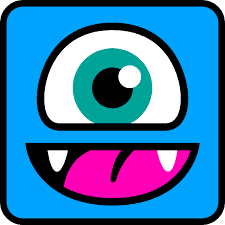
Psychiatric medications blunt all feelings
Dr: Fred: And that’s what we’re really talking about here. Now, again, to our listeners. If you have been going far and wide and it found a combination of, psychiatric medications, that works for you and your, mental health, improves considerably, stick with it. By the way, I don’t use the phrase, mental illness, anymore. I don’t think there is such a thing as, mental illness.
There’s definitely such thing as mental discomfort, mental misery, mental pain, for sure. But illness suggests that you’re sick and I don’t think that you’re sick, you’re only experiencing an unpleasant part of life. Now when we started looking at that, then in, true voice, actually voicing your real self, it’s amazing how healing can happen immediately.
I chose, podcasting, to be the avenue for that because you can say your, true voice, right here on a podcast. It’s one of the last remaining spaces on the planet where you can actually say your, true voice. You can’t do it on social media, obviously, you can’t do it. You know, in most cases, you can’t go to like a concert and do it. You can’t have an auditorium full of people to speak your, true voice, anymore. So, your, true voice, is being taken away from you.
True voice, is a way when you resonate with another person and truly, honestly authentically connect with another person. It’s amazing what that does instantly for your, mental health. Even if you haven’t connected with anyone in a long time when you do connect. It’s amazing what healing takes place way better than any, psychiatric medications, I’ve ever written. And like I said, I’ve written prescriptions for over 100,000, psychiatric medications.

True Voice podcasting contributes to your mental health
Myrna: Well, explain it a little bit. What happens when they come on your podcast and talk about their, true voice?
Dr Fred: The, true voice, podcasting is not a podcast, it’s actually a course that I teach so that people who want to express their, true voice, will learn that they can do that best through, podcasting. We spend the first half of the course of a 13-week course really honing on people to get in touch and rediscovering their, true voice, authenticity. And in that authenticity, really exploring what they love.
In your case, you’ve got, mindset, somewhere along the line, mindset, became part of your, true voice. When you start doing it, you can wake up every single day like who am I going to talk to you today about, mindset. And there’s something that drives you forward inside of your commitment to learning more and to teach you more about, mindset.
So other people they’re gonna come up with whatever they come up with. Maybe some of them will come up with really big ones like, climate change or racism or sex trafficking, and maybe others will come up with seemingly smaller ones like petunias in Arkansas or something.

Conclusion
It’s fine, whatever. Your Podcast theme is. We then walk you through your authenticity into a world of a maximum podcast creation and production. I have a couple of teammates who co-lead with me and we take people from zero to podcaster in three months, and then dive in really learn how this method works if you go to www.findyourtruevoicebook.com And you go in there and then I will send you a copy of the book for free. If you go to www.welcometohumanity.net you will find information about my true voice podcasting course. Check out my book: The Creative 8 on Amazon
Additional Resources

